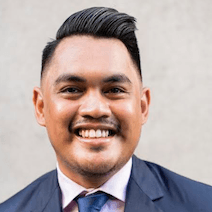SUMMARY
This is AI generated summarization, which may have errors. For context, always refer to the full article.
![[OPINION] Constructing a Muslim identity in a predominantly Christian society](https://www.rappler.com/tachyon/r3-assets/612F469A6EA84F6BAE882D2B94A4B421/img/AE7D656753954442AFCBAE863D0DA297/ispeak-muslim-convert-struggles.jpg)

I grew up Christian.
Unlike a lot of students who “lose” their faith and become skeptical of organized religion as they step foot in University of the Philippines-Diliman, it was in UP that I fully committed to converting to Islam.
Actually, “converting” is not the proper word for embracing Islam as a previous adherent of another religion. We Muslims believe that everyone, regardless of race or nationality, is born a Muslim, but that we come to adopt any religion or faith that is predominant in the society or community to which we are born. So Christianity was a religion that was, for all intents and purposes, forced upon me. That’s why “reverting” to Islam as a faith and a way of life was something that I chose for myself. I started reading about it long before my decision, but it was only about 5 years ago that I felt the freedom to choose a religion that was going to lead my way moving forward.
Since I am not Muslim by birth, and I only proclaimed my “shahada” in 2014, I have been taking slow, tentative baby steps in learning my new faith little by little. For some weird metaphysical reason or another, it just appealed to my curiosity, and I was fascinated with the finer points of the religious traditions and habits that a Muslim should follow. Needless to say, I have embraced the Pillars of the Faith, including prayers and keeping other religious obligations such as abstaining from food and drink that is considered “haram.”
My first years as a new Muslim were definitely tough. I was previously unaware of how difficult life was as a Muslim, because it was a struggle that I could not relate to as a Christian. However, upon converting, I was confronted by many issues such as the lack of public prayer spaces. Often, mushallahs or prayer rooms in public establishments are hidden in embarrassing, dark corners or moth-eaten nooks, such as a dead end in a shopping mall hallway or a quiet corner at the end of a row of cell phone repair stalls. Keeping with the commandment to pray at prescribed times was definitely a struggle, and I often found myself in cramped department store dressing rooms because I initially tried to pray and stick to the ever-changing schedule of the 5 daily prayers. I just gave up in the end, and consolidated my prayers at home every evening. This is in great contrast to the ubiquity of prayer rooms and mosques in other countries. Speaking of mosques, the only mosques in the city are dilapidated and run-down; again, a great contrast to the beautiful and well-maintained churches that are located all over Metro Manila.
Another aspect of Muslim life that is made difficult by the lack of provisions is sticking to the halal diet. Actually, unless you buy in select butchers and meat sellers in specialty halal stores, most Muslims in Manila are resigned to buying supermarket meats that are not completely halal. Most Muslims prefer to eat meats that were slaughtered with the halal method, but because of the lack of readily available halal meat options, most of us would just shrug and say, “Well, as long as it’s not pork. Similarly, there are limited dining options for those who are strict on halal restrictions, as deeply devout Muslims would not dare venture into restaurants that also serve pork, fearing cross contamination through vessels, utensils, and serveware that also come into contact with food that is prepared with non-halal ingredients.
To other Filipinos, these concerns are not even a blip on their radar and most of our countrymen are blatantly unaware of these struggles. That is mostly why most Muslims like to keep together in tight-knit communities, where they could access halal food and prayer facilities, among many others logistical concerns.
It has become my advocacy to spread more awareness about these issues. One of the biggest reasons why Filipino Muslims are so disenfranchised and so disregarded in the Philippines is primarily because a lot of people don’t even know some of the basic principles of Islam. There’s a lot of bigotry, hatred, and biases that have permeated our people’s culture, breeding animosity towards a minority that has been fraught with violence, outright war, and displacement. As a Muslim convert, part of my advocacy is to bridge this gap and provide even just the most fundamental knowledge about how our Filipino Muslim brothers and sisters live amongst us: In plain sight but hidden under a veil of mystery and misunderstanding.
As a Muslim convert, one of the ways in which I immersed in the culture was by discovering Quiapo and imbibing in its culture. It was an educational experience for me, getting to know my new brethren in the faith, and it is my hope that the same process will be instrumental in bringing about more awareness and appreciation for the faith. In line with my work as a tour guide in Manila, I organized a tour that alllowed people to acquaint themselves with Islam and its fundamental teachings. I discuss the struggles of Muslim Filipinos with the goal of spreading more awareness, and with the hope of influencing change. – Rappler.com
Nonito Cabrera is a guide for walking tours in Quiapo and Intramuros. He will soon be joining the Department of Foreign Affairs as a Foreign Service Officer, having recently passed the FSO exam.
Add a comment
How does this make you feel?
There are no comments yet. Add your comment to start the conversation.